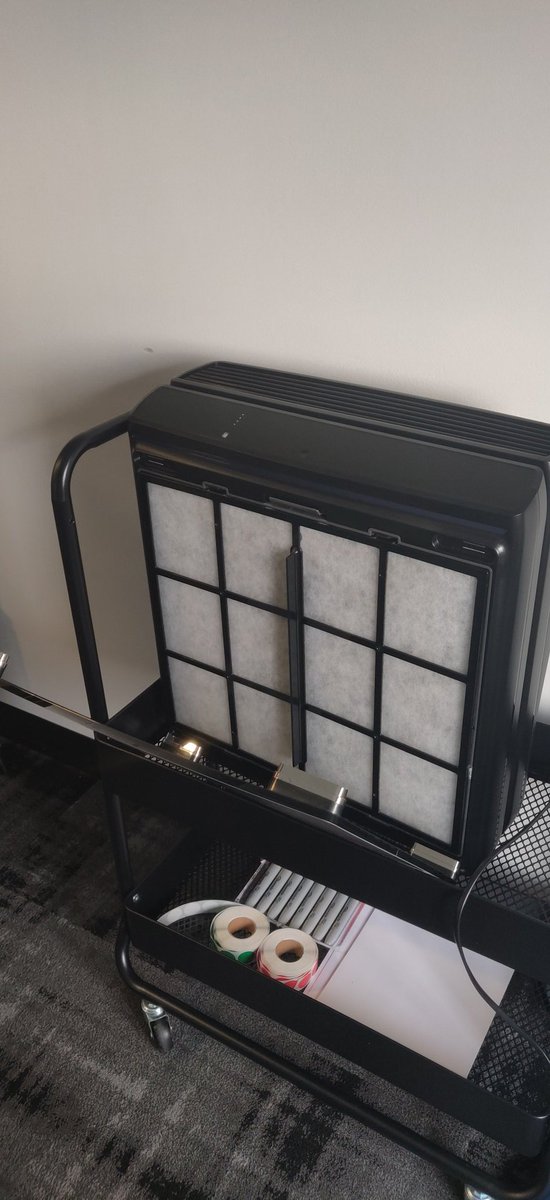
There's ample evidence that clean air matters when it comes to COVID. And while we've long known this, we're getting more and more studies proving how important this is in #HigherEd. We can keep our classrooms safe with HVAC systems, HEPAs, masking, and other mitigations. 1/12
If you've seen me on campus this term, you will know me as "that lady wheeling around a cart." That is right. I am the lady wheeling around my own HEPA filter because I am high risk for COVID. So having clean air + masking in the classroom/office are vital for me. 2/12
Here's a side view and what the HEPA looks like, and another front view without the front cover. 4/12 



I have a Rabbit Air A3 from @RabbitAir and I have an older model (the A2) in my apartment. The A3 model goes for roughly $770. I know that's a hefty price, but for me it was totally worth it. 5/12
The rolling cart is from Target, but there are a ton out there. The one I purchased cost $55. You can definitely find comparable items for cheaper, but I had a few concerns in mind. 6/12
I knew I needed to be able to lift the HEPA myself and to change out the filters myself. I also wanted to be able to push the cart around easily, and fit it comfortably in my tiny office. So the rabbit air was a great size and weight (20 lbs) for me as a disabled person. 7/12
I also wanted something that could filter large spaces. The A3 model covers 1070 sq feet and filters 8560 cubic feet of air in 30 min. It's also pretty quiet, even on full blast. Changing the filters out is easy and intuitive, and the packaging is phenomenal. 8/12
Since I knew I'd be carting around something 24/7 I wanted it to be aesthetically pleasing. I know that doesn't matter but I still care. It makes me feel more professional and it matches my historian vibes. Obv not important, but definitely a bonus. 9/12
I roll this cart into every class I teach. I keep it in my office the rest of the time. I change out filters at least every 6 mo, and I mask and encourage students to stay home when sick. So far, I have not caught a symptomatic case of covid (fingers crossed). 10/12
I know it's a hefty investment to make. For me, I knew that nothing was more important than my health. And nothing was more important than feeling safe at work. My HEPA keeps me safe, makes me feel safe, and provides protection for everyone in my classroom. 11/12
Clean air works. I hope that our universities come to invest in these protective measures just as numerous individuals have. The science is there. 12/12 scienceblog.com/534807/new-pur…
Links to rabbit air: rabbitair.com/products/a3-ai…
Links to target cart: target.com/p/wide-metal-u…
• • •
Missing some Tweet in this thread? You can try to
force a refresh





